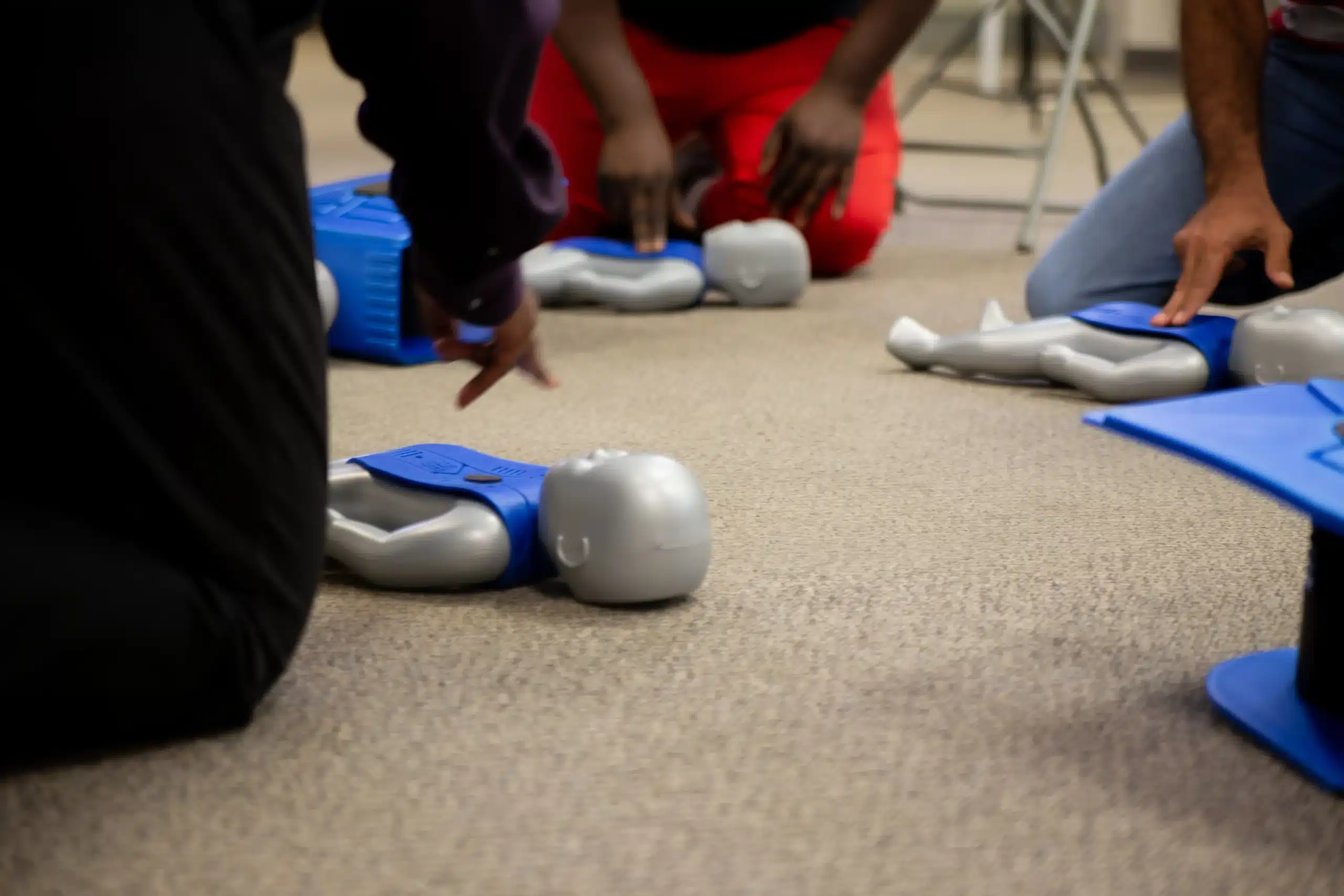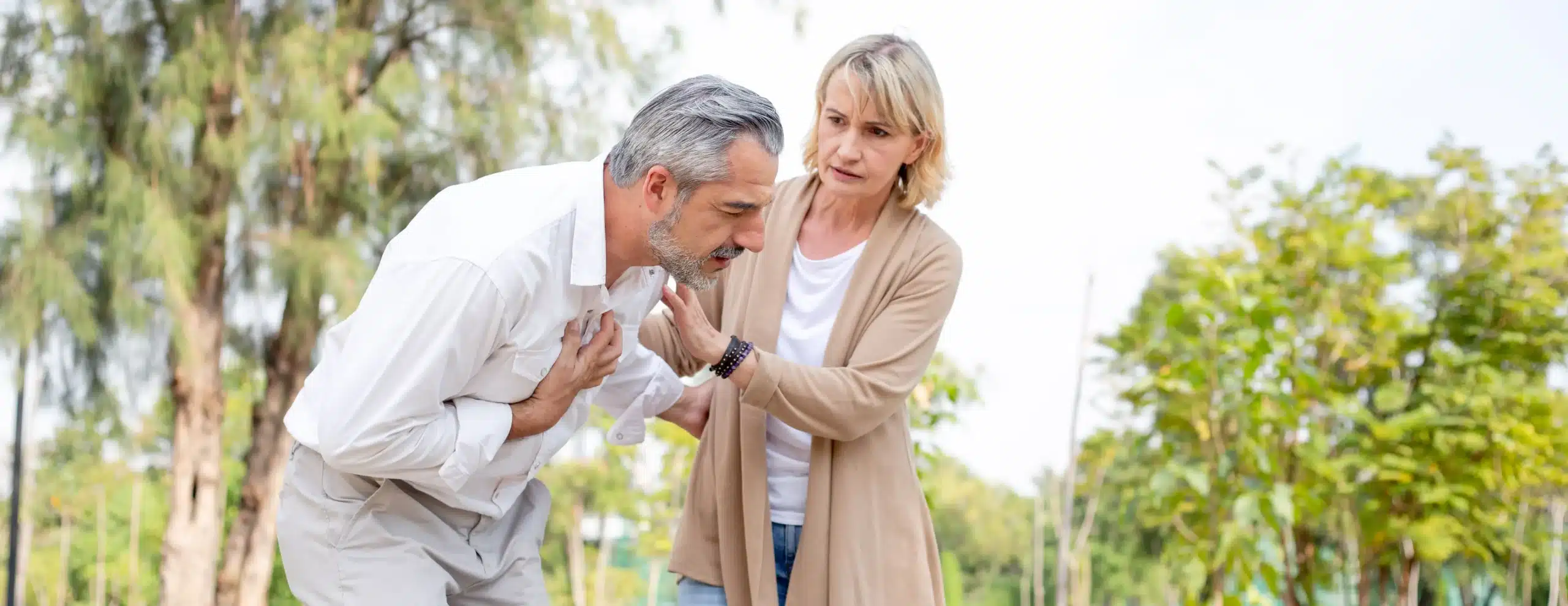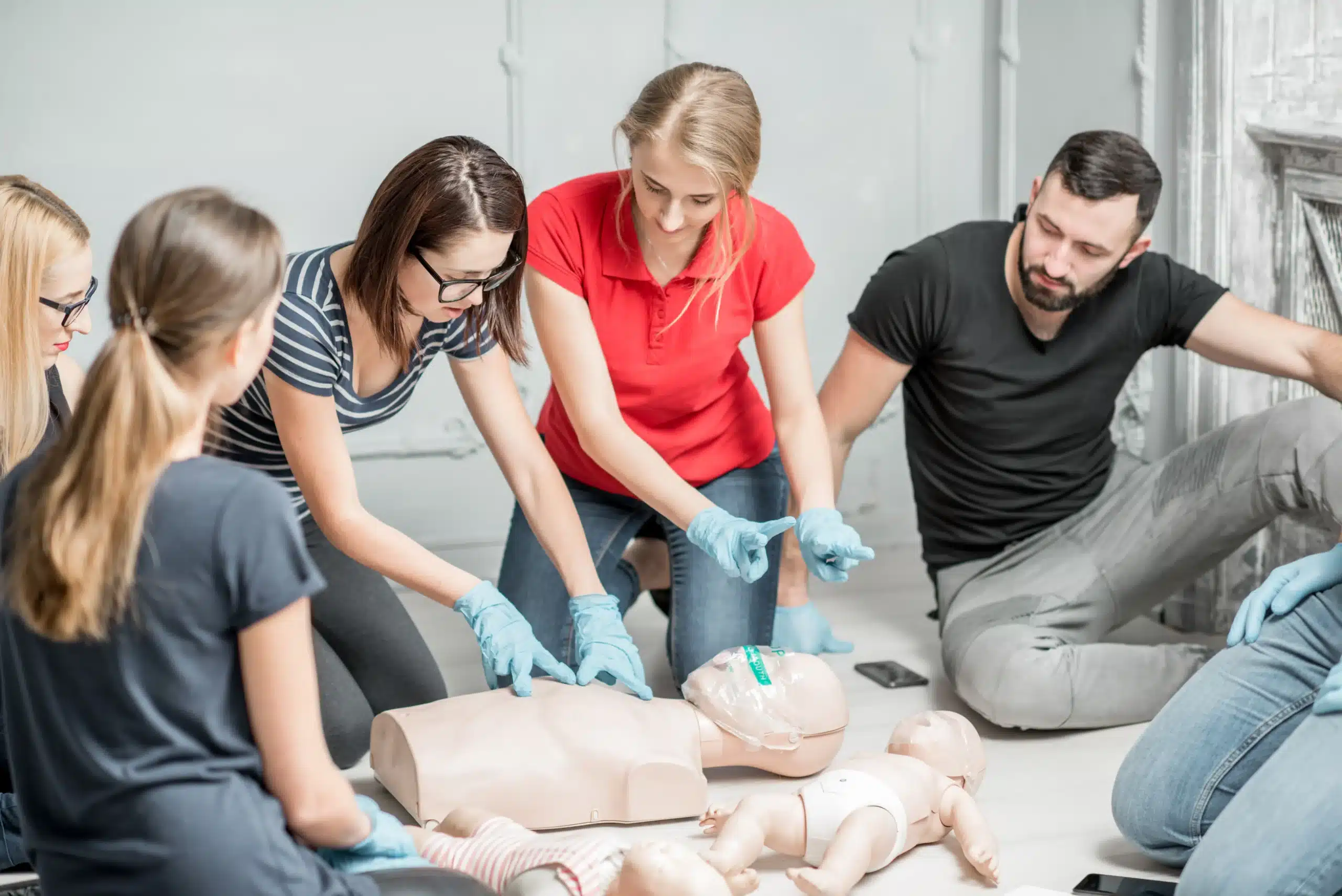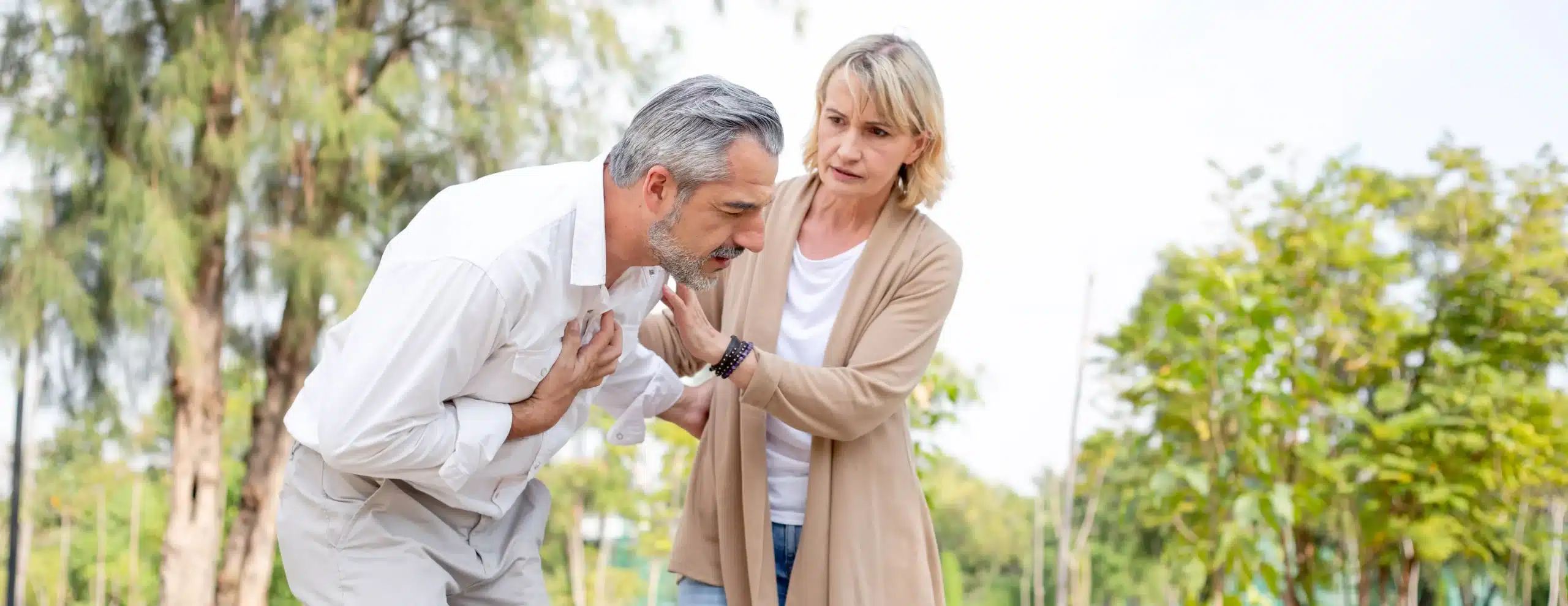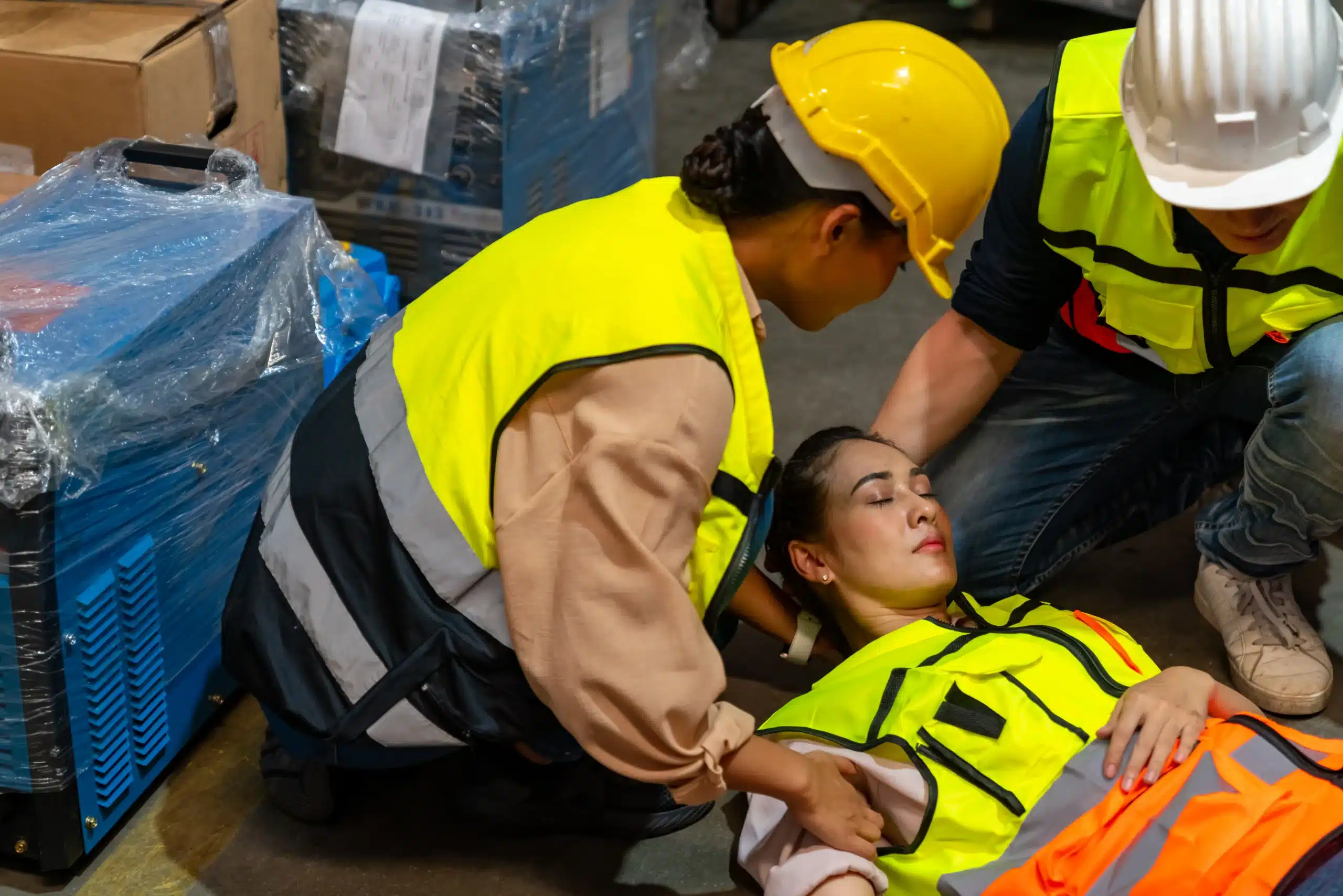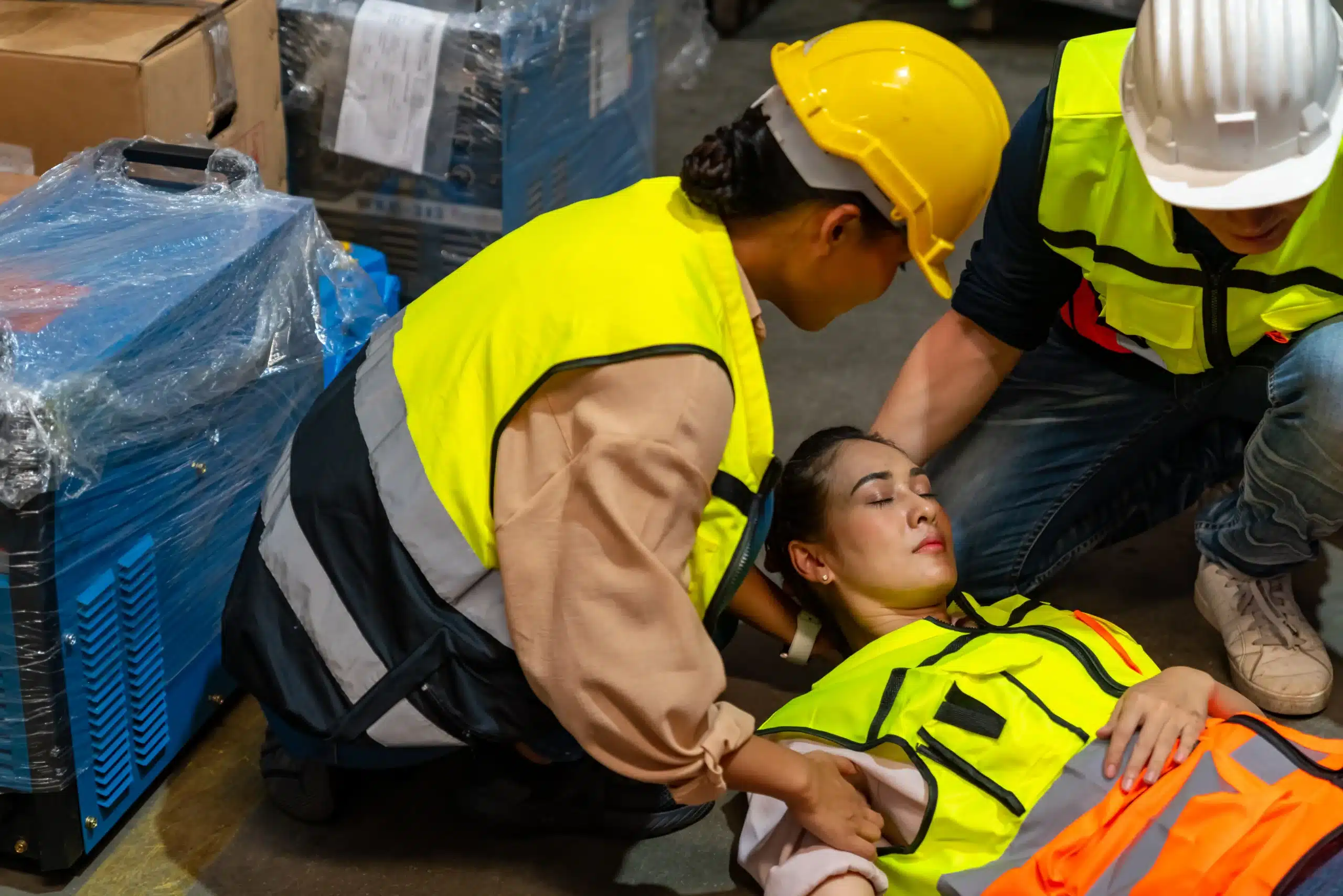Ready to empower yourself with life-saving skills? BLS certification is more than just a credential—it’s a pathway to confidence and preparedness in medical emergencies. This guide is your one-stop resource for all things BLS in Berkeley. We’ll demystify BLS, explaining what it entails and why it’s so important. We’ll help you find the perfect BLS courses in Berkeley that fit your schedule and learning style, whether you prefer in-person instruction, online flexibility, or a blended approach. We’ll also cover the cost of BLS training, discuss the differences between BLS and other CPR certifications, and address common questions and concerns. Let’s explore the world of BLS together!
Key Takeaways
- BLS certification equips you with advanced lifesaving skills: It’s a valuable credential for healthcare professionals and a smart choice for anyone wanting to be prepared for emergencies.
- Find a BLS course that matches your learning style and schedule: With options ranging from in-person classes to online modules and blended learning, you can choose the format that best suits your needs.
- Invest in your skills and learn BLS: Explore available discounts and group rates to make this valuable training accessible. BLS empowers you to confidently respond to emergencies and potentially save a life.
What is BLS?
Knowing basic life support can make all the difference in a medical emergency. But what does BLS training actually involve, and who benefits most from it? Let’s break it down.
BLS Defined
BLS stands for Basic Life Support. It’s a step up from standard CPR and is designed for healthcare professionals and first responders like doctors, nurses, EMTs, and firefighters. BLS covers everything in a standard CPR course, plus more advanced techniques for handling cardiac arrest, respiratory distress, and airway obstructions. It often includes training on using automated external defibrillators (AEDs). Think of it as the next level of lifesaving skills. You can find more information on our BLS certification page.
Why BLS Matters
BLS training equips you with the skills to respond effectively in various emergencies. It goes beyond chest compressions and rescue breaths to include using an AED, managing airways, and assisting someone who is choking. These skills can significantly improve the outcome during a medical crisis. BLS certification is often a job requirement for healthcare providers and first responders, so this training can open professional doors.
Who Needs BLS?
BLS certification is essential for many healthcare professionals, including doctors, nurses, EMTs, and firefighters. Many medical facilities require their nurses to maintain current BLS credentials. Beyond these professions, anyone working in healthcare, childcare, education, or even fitness could benefit from BLS training. We offer discount group classes for special rates. If you’re unsure whether BLS is right for you, take a look at our low price guarantee.
Where to Find BLS Courses in Berkeley
Finding the right BLS course can feel overwhelming, but several excellent providers serve the Berkeley area. Here are a few options to explore:
Berkeley CPR Classes
Berkeley CPR Classes offers various American Heart Association certification courses, including BLS. With a commitment to customer service and a low price guarantee, they provide daily classes in over 60 cities. Their Berkeley location conveniently serves Alameda, Oakland, and Berkeley, making it easy to find a class that fits your schedule. Check out their BLS course for more details. They also offer discount group classes if you’re learning with friends or colleagues. For healthcare professionals needing to renew their certifications, they also offer RQI classes.
American Heart Association
The American Heart Association (AHA) is a nationally recognized leader in CPR training. They offer a range of BLS courses in various formats, including in-person, blended learning (a combination of online and in-person instruction), and online-only options. This flexibility allows you to choose the learning style that best suits your needs. The AHA also provides resources and information on CPR and emergency cardiovascular care.
American Red Cross
The American Red Cross is another well-respected organization offering BLS certification. Their BLS courses cover essential life-saving skills, including CPR and AED use. Like the AHA, the Red Cross offers various course formats to accommodate different learning preferences and schedules. You can find a class near you on their website.
Safety Training Seminars
Safety Training Seminars provides a variety of safety training programs, including BLS certification. They focus on providing convenient and affordable options for individuals and groups. Their website offers information on course schedules, pricing, and registration.
BLS vs. Other CPR Certifications: Choose the Right One
BLS vs. Standard CPR
Basic Life Support (BLS) and standard CPR (Cardiopulmonary Resuscitation) are distinct certifications geared toward different audiences. CPR training focuses on core life-saving skills like chest compressions and rescue breaths. It’s an excellent choice for anyone who wants to learn how to respond to cardiac arrest. This training often satisfies workplace safety requirements and prepares individuals to assist in emergencies. BLS certification, on the other hand, is designed for healthcare professionals, like doctors and nurses, and first responders. BLS covers all the elements of standard CPR training and adds advanced skills for managing cardiac arrest, respiratory distress, and airway obstructions within a professional environment. This specialized training makes BLS essential for those in healthcare, meeting industry standards and certification requirements. Learn more about our BLS certification course.
BLS vs. ACLS
BLS serves as the foundation for advanced certifications like ACLS (Advanced Cardiovascular Life Support). Think of BLS as your essential life-saving toolkit, equipping you with the fundamental skills to handle immediate emergencies. ACLS expands on this foundation, introducing more complex protocols for managing cardiac arrest and other serious cardiovascular situations. It covers topics such as electrocardiogram (ECG) interpretation and pharmacology. ACLS certification is generally required for healthcare providers in hospitals or emergency response settings who routinely handle complex medical emergencies. We also offer ACLS training for those seeking this advanced certification.
Which Certification Fits You?
The best choice between CPR, BLS, or ACLS depends on your personal needs and career path. If you want to acquire basic life-saving skills for personal use, or for professions like teaching or childcare, standard CPR training might be a good fit. But if you are a healthcare professional or plan to become one, BLS certification is crucial. It provides the comprehensive training and credentials you need to meet professional standards and provide effective care during medical emergencies. For those considering training as a team, we offer discounts for group CPR classes.
BLS Course Formats in Berkeley
Choosing the right BLS course format depends on your learning style and schedule. Let’s break down the options available in Berkeley: in-person, online, and blended learning.
In-Person Classes: Learn Hands-On
In-person BLS classes offer a structured, hands-on learning experience. You’ll work directly with a certified instructor and fellow students, practicing skills like CPR and AED use on mannequins in a controlled environment. This format is great for people who learn best through direct interaction and appreciate immediate feedback. These classes typically lead to a two-year certification that meets workplace safety standards. If you thrive in a traditional classroom setting and value hands-on practice, an in-person BLS course might be the perfect fit.
Online Courses: Learn Flexibly
Online BLS courses offer a flexible alternative to traditional in-person classes. You can complete the coursework at your own pace, anytime, anywhere. These courses often include interactive modules, videos, and quizzes to help you learn essential CPR techniques, AED operation, and how to use bag-valve masks. Reputable providers like ACLS.com offer accredited online BLS certification that aligns with current best practices. This format is particularly convenient for busy professionals with demanding schedules.
Blended Learning: Get the Best of Both
Blended learning combines the convenience of online learning with the benefits of hands-on practice. Programs like HeartCode BLS allow you to work through online modules at your own speed, then attend an in-person skills session with a certified instructor to demonstrate your proficiency. This hybrid approach offers flexibility while ensuring you gain practical experience and receive personalized feedback.
Pros and Cons of Each Format
Each BLS course format has its own advantages and disadvantages. In-person classes excel at providing hands-on training and immediate feedback, but require a fixed schedule. Online courses offer unparalleled flexibility, but some learners may miss the hands-on aspect. Blended learning offers a compromise, combining flexibility with practical skills development. Consider your learning preferences, schedule, and the importance of hands-on practice for your profession when making your decision. Ultimately, the best format is the one that best suits your individual needs and helps you confidently master the lifesaving skills taught in BLS training.
Cost of BLS Courses in Berkeley
Knowing the price range for BLS courses helps you budget and compare options. Several factors influence the final cost, including the course format (online or in-person), the training provider, and any included materials.
Typical Prices
BLS course prices in Berkeley generally fall between $70 and $100. This range reflects the standard market rate for quality instruction and certification from a recognized provider. Be wary of significantly lower prices, as they may indicate reduced instruction time or less comprehensive materials.
Discounts and Group Rates
Many providers, including Berkeley CPR Classes, offer discounts for group bookings. This can be a smart option if you’re coordinating training for a workplace or a group of friends. Some providers also offer discounts for students, healthcare professionals, or returning customers. Always inquire about potential discounts when you register.
Low Price Guarantees
Look for training centers that offer a low-price guarantee. This ensures you’re getting the best possible value for your BLS certification. A low-price guarantee demonstrates the provider’s commitment to affordable training.
Benefits of BLS Certification
While cost is a factor, remember that BLS certification is an investment in your skills and career. BLS certification can open doors to various healthcare roles and demonstrates your commitment to patient safety. The ability to provide immediate and effective care during a medical emergency is invaluable. Consider the long-term benefits when evaluating the cost of a BLS course.
What Happens in a BLS Course?
This section covers what you can expect during a BLS course, from the skills you’ll learn to the certification process. Understanding these elements will help you feel prepared and confident going into your training.
Course Content and Skills
BLS courses cover a range of life-saving techniques. You’ll learn how to recognize the signs of a cardiac arrest and how to help someone who is choking. The curriculum includes training on automated external defibrillators (AEDs), essential airway management techniques, and how to deliver effective chest compressions. These skills equip you to provide immediate assistance in various emergency situations.
Certification Process
You’ll receive your BLS certification card upon successfully completing the course. Many providers, like those offering CPR certification classes in Berkeley, issue certification cards the same day you complete your in-person skills test. This certification is typically valid for two years. Recertification courses are readily available if your certification is close to expiring or has already expired.
Prerequisites and Materials
There aren’t typically any strict prerequisites for BLS courses. A reputable BLS provider, such as those offering BLS renewal courses, will offer comprehensive resources, including blended learning options and instructor-led training. This ensures access to high-quality learning materials and support.
Practice and Assessment
BLS courses involve hands-on practice to master the physical skills required for CPR. The training can be physically demanding, so consider your physical abilities before enrolling. Watching pre-course videos can significantly improve your chances of passing the skills test, giving you a head start on the practical application of these techniques.
Get Ready for Your BLS Course
So, you’ve signed up for your BLS course—congratulations! Now, let’s make sure you’re prepared to make the most of your training. This section covers everything you need to know before you walk in the door (or log in, if you’re taking your course online).
What to Bring
For in-person BLS training, comfortable clothing is key. You’ll be moving around and practicing skills, so athletic wear or scrubs are a good choice. Bring a notebook and pen to jot down notes, though your instructor will likely provide key materials. A water bottle is also a good idea to stay hydrated, especially during hands-on practice. If you’re taking an online course, your needs are simpler: a reliable internet connection, a computer or tablet, and a quiet space to focus. The American Heart Association offers helpful resources for BLS renewal, including blended learning and instructor-led courses.
Tips for Success
Want to ace your BLS course? Preparation is half the battle. Watching pre-course videos can significantly increase your chances of passing the skills test. Reviewing the BLS Provider Handbook beforehand can also give you a head start. During the course itself, don’t be afraid to ask questions! Your instructor is there to help you understand the material and master the skills. Active participation, both in discussions and hands-on practice, will solidify your learning.
Common Challenges
One common misconception is that BLS certification is a one-time requirement. Many healthcare providers mistakenly believe they don’t need recertification. Remember, BLS skills need to be refreshed regularly to stay current with the latest guidelines. Another misconception? Some people think BLS training is only for healthcare professionals. The truth is, BLS training can benefit anyone, from teachers and coaches to parents and caregivers. CPR training can be strenuous, so those with physical limitations should consider their abilities and the possibility of rescheduling if needed.
Renew Your BLS Certification
Keeping your BLS skills sharp is crucial for any healthcare provider. Renewing your BLS certification is straightforward, and this section covers the renewal process, continuing education options, and why staying up-to-date is so important.
Renewal Process
Berkeley CPR Classes offers American Heart Association-certified BLS renewal courses. These in-person BLS renewal courses refresh essential skills like CPR, AED use, and relieving choking. You’ll typically demonstrate your proficiency in these core BLS skills as part of the renewal process.
Continuing Education
The American Heart Association provides flexible options for renewing your BLS certification, including in-person and online courses. This allows healthcare professionals to choose the format that best suits their schedules and learning styles. Whether you prefer hands-on learning or the convenience of online modules, there’s a renewal course that works for you. Many providers also offer continuing education opportunities that go beyond basic renewal requirements, allowing you to expand your skills and stay on top of best practices.
Stay Updated
Staying current with the latest guidelines and training options is key to maintaining your certification and providing excellent care. Medical knowledge and best practices are constantly evolving, making regular review and updates essential. Resources like the American Heart Association website offer valuable information on changes in guidelines and recommendations. This commitment to ongoing learning shows your dedication to patient safety and high-quality care, ensuring you’re always prepared to respond confidently and effectively in critical situations.
Common BLS Course Concerns
It’s normal to have questions before signing up for a BLS course. This section addresses some common concerns to help you feel prepared and confident in your decision.
Course Difficulty and Time
One of the biggest misconceptions about BLS certification is that it requires a huge time commitment. In reality, BLS courses are designed to be efficient and manageable, even for busy professionals. Berkeley CPR Classes offers courses daily, allowing you to find a schedule that works for you. The course material focuses on practical skills and essential knowledge, making it straightforward to learn and retain. Don’t let time constraints hold you back from gaining this life-saving skill. Check out our course options.
Online vs. In-Person
Another frequent question is whether to choose an online or in-person BLS course. Both formats have their advantages. Online courses offer flexibility, allowing you to learn at your own pace and on your own schedule. In-person classes provide hands-on training and direct interaction with instructors. Consider your learning style and preferences when making your decision. Blended learning, which combines online modules with in-person skills sessions, can also be a great option. Explore different learning formats.
Relevance to Professions
While BLS certification is crucial for healthcare providers, its relevance extends far beyond the medical field. Anyone can benefit from knowing how to respond to a medical emergency. From teachers and childcare providers to coaches and construction workers, BLS training equips individuals with the skills to potentially save a life. Understanding basic life support techniques, including using an automated external defibrillator (AED) and airway management, empowers you to assist someone who is choking or experiencing cardiac arrest. BLS training isn’t just for doctors and nurses—it’s a valuable skill for everyone. Learn more about BLS.
BLS Training Myths
Several myths surround BLS training, often creating unnecessary confusion. Let’s debunk some of the most common ones:
- Myth: BLS certification is only for medical professionals. Fact: As mentioned above, BLS training is beneficial for anyone who wants to learn life-saving skills. See who needs BLS.
- Myth: BLS certification is too time-consuming. Fact: BLS courses are designed to be concise and efficient, fitting into even the busiest schedules. Find a BLS course near you.
- Myth: BLS certification is unnecessary if you have CPR training. Fact: While CPR is a component of BLS, BLS certification covers a broader range of skills, including using an AED and team response scenarios. BLS certification goes beyond basic CPR. Understand the difference between BLS and CPR.
- Myth: Online BLS certification is not as credible as in-person training. Fact: Accredited online BLS courses provide the same level of knowledge and certification as in-person courses. Explore online BLS certification.
- Myth: BLS certification is a one-time requirement. Fact: BLS certification typically needs renewal every two years to ensure your skills stay up-to-date. Staying current with the latest guidelines is essential for providing effective care. Learn about BLS renewal.
Choose the Right BLS Course in Berkeley
Finding the right BLS course can feel overwhelming with so many options. Don’t worry, it doesn’t have to be. By considering a few key factors and asking the right questions, you can easily find a BLS course in Berkeley that fits your needs and budget.
Factors to Consider
Berkeley offers a variety of CPR courses, from basic community training to advanced professional certifications like BLS and ACLS. Think about your specific requirements. Are you a healthcare provider needing BLS for your job? Or are you a concerned citizen wanting to learn essential lifesaving skills? Your current role will heavily influence the type of course you need. For example, healthcare providers in Berkeley often choose the American Heart Association BLS course for its comprehensive and recognized curriculum. Also, consider your learning style. Do you prefer hands-on, in-person training or the flexibility of online learning? Knowing your preferences will help you narrow your choices.
Questions for Providers
Once you’ve identified a few potential providers, don’t hesitate to ask questions. Inquire about the course format, instructor qualifications, and whether the certification meets your specific needs. For instance, if you’re a healthcare professional, ensure the course aligns with the American Heart Association’s guidelines. Ask about the total cost, including any hidden fees, and if they offer group discounts. Check if the provider offers resources like blended learning options, which combine online learning with in-person skills sessions. The American Heart Association offers resources for BLS renewal, including blended learning and instructor-led courses. A provider’s responsiveness and willingness to answer your questions can also speak volumes about their commitment to student success. A good BLS renewal provider offers more than just the course itself.
Make Informed Decisions
Choosing a BLS course is an important decision. By understanding your needs, researching providers like Berkeley CPR Classes, and asking clarifying questions, you can make an informed choice. Remember, a well-chosen BLS course empowers you with the confidence and skills to provide crucial care in emergencies. Don’t let misconceptions hold you back from gaining this valuable skill. Take the time to research and choose the right BLS course in Berkeley, and you’ll be well-prepared to make a difference. Debunking common myths about BLS certification highlights the importance of this vital training.
Related Articles
- BLS Renewal in Berkeley: Your Go-To Guide – Berkeley CPR Classes
- HeartCode BLS in Berkeley: Your Guide to Certification – Berkeley CPR Classes
- BLS Renewal in Oakland: Your Guide – Berkeley CPR Classes
- HeartCode BLS in Alameda: Your Guide to Certification – Berkeley CPR Classes
- ACLS HeartCode Oakland: Your Certification Guide – Berkeley CPR Classes
Frequently Asked Questions
Is BLS certification the same as CPR certification?
No, BLS (Basic Life Support) certification differs from standard CPR certification. CPR training focuses on core lifesaving skills like chest compressions and rescue breaths. BLS builds upon CPR, adding advanced techniques like AED use and airway management, and is typically required for healthcare professionals.
How much does a BLS course cost in Berkeley?
BLS courses in Berkeley usually range from $70 to $100. Prices vary based on the training provider, course format (online or in-person), and included materials. Many providers offer discounts for groups, students, or returning customers. Always ask about potential discounts when you inquire.
What can I expect during a BLS course?
A BLS course covers essential lifesaving techniques, including CPR, AED use, and how to recognize and respond to cardiac arrest and choking. You’ll participate in hands-on practice and demonstrations to develop these skills. Upon successful completion, you’ll receive a BLS certification card, typically valid for two years.
How do I choose between an online and in-person BLS course?
Consider your learning style and schedule. Online courses offer flexibility, while in-person classes provide hands-on training and direct interaction with an instructor. Blended learning combines online modules with in-person skills sessions, offering a balance of both.
How often do I need to renew my BLS certification?
BLS certification is typically valid for two years. Renewal courses are available to refresh your skills and ensure you’re up-to-date with the latest guidelines. Regular renewal demonstrates your commitment to providing high-quality care and patient safety.



